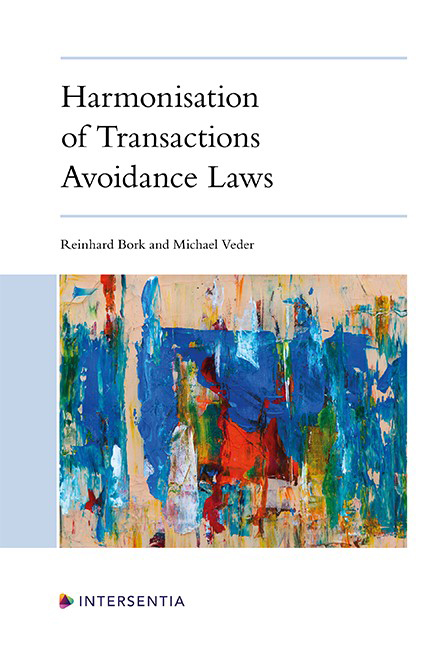Template for Impact Assessments
Published online by Cambridge University Press: 26 May 2022
Summary
We kindly ask you to write a short (5 – 10 pages) impact assessment, i.e. an evaluation of what the implementation of our Model Law in your national transactions avoidance law would entail. We intend to include the impact assessments in our book. Please feel free to use the topics listed below for orientation. However, where your national law already covers our proposals, no extensive elaborations on such points are necessary.
A. INSOLVENCY LAW OF (YOUR JURISDICTION)
Please describe briefly whether your law has its own insolvency statute or whether transactions avoidance law is part of commercial law, company law or general civil law. Further, please mention whether your transactions avoidance law applies also to natural persons (including consumers) or only to companies (legal entities) and whether it is applicable in restructuring proceedings.
B. SCOPE
Against this background, how would the implementation of our Model Law change the scope of your transactions avoidance law?
C. GENERAL PREREQUISITES
Please explain whether your national transactions avoidance law contains the general prerequisites elaborated on in our proposal (transaction – prior to the opening of insolvency proceedings – disadvantageous for the general body of creditors).
Please give us in particular (but not exclusively) guidance on:
– inclusion of forbearance (omission);
– inclusion of transactions by the opponent or third parties;
– restriction to transactions performed prior to the opening of proceedings;
– relevance of the completion of the transaction.
AVOIDANCE GROUNDS
1) Please explain whether your national transactions avoidance law provides for a choice of avoidance grounds. If so, are preferences, transactions at an undervalue, and transactions intentionally disadvantaging creditors regulated in separate avoidance grounds?
2) Please describe the impact of our §2 Model Law (with the exceptions in §3 Model Law) on your national law, in particular (but not exclusively) regarding:
– inclusion of collateralisation
– acting party
– inclusion of satisfaction by individual enforcement
– inclusion of set-off
– inclusion of other transactions
– distinction between congruent and incongruent coverage
– substantive insolvency necessary (if so, how is this defined?)
– inclusion of imminent inability to pay debts
– connection of suspect period to filing for insolvency
– length of suspect period
– mental elements: only on the creditor’s side
– mental elements: reference point (substantive insolvency/filing)
– mental elements: inclusion of gross negligent ignorance?
– treatment of closely related parties (as defined in §6 Model Law)
– treatment of subordinated creditors.
Information
- Type
- Chapter
- Information
- Harmonisation of Transactions Avoidance Laws , pp. 287 - 290Publisher: IntersentiaPrint publication year: 2022
